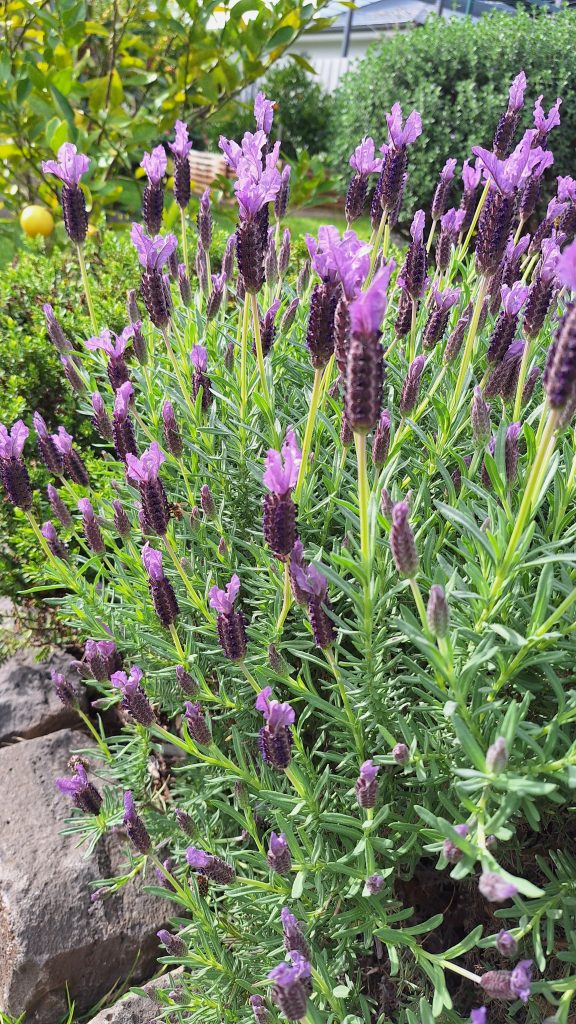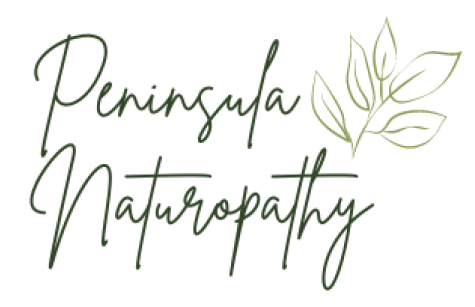
Introduction to Seasonal Herbal Gardening in Melbourne.
As the cool winds of winter fade, spring in Melbourne brings an opportunity to refresh both your garden and your beauty routine with the healing power of herbs. Growing medicinal plants at home allows you to enjoy fresh, organic ingredients for natural skincare treatments, soothing teas, and a more holistic approach to wellness. Whether it’s a relaxing lavender mask or a rejuvenating lemon balm tea, spring herbs can help you cultivate beauty from the inside out.
In this guide, we’ll explore the essentials of starting your herbal garden, how to use your harvest for glowing skin, and the benefits of herbal teas that enhance beauty from within—including the addition of fresh, in-season lemons and the calming properties of lavender!
Why Grow Your Own Herbs?
Herbal gardening not only provides fresh ingredients for natural skincare and teas, but it also offers numerous health benefits. Herbs are packed with antioxidants, anti-inflammatory compounds, and essential nutrients that support skin health, digestion, and relaxation. With Melbourne’s mild spring climate, herbs like lavender, calendula, lemon balm, and chamomile thrive, giving you the perfect opportunity to grow herbs that enhance both your beauty and wellness routines.
Starting Your Herbal Garden
1. Choosing the Right Location
Find a sunny spot in your garden or balcony where your herbs can receive 4-6 hours of sunlight each day. Lavender, rosemary, and peppermint flourish in these conditions, offering versatile uses for skin treatments and refreshing teas.
If space is limited, consider planting in containers or pots—herbs like lavender and lemon balm grow well in small spaces and can be easily harvested for beauty treatments and teas.
2. Soil and Watering Needs
Melbourne’s spring rains will help your herbs thrive, but it’s essential to ensure your garden beds or pots have well-draining soil. Enrich the soil with compost or organic matter to boost growth, and water regularly to keep your herbs vibrant and healthy.
Top Herbs for Skincare, Teas, and Spring Beauty
1. Lavender (Lavandula angustifolia)
Lavender is the star of herbal beauty treatments due to its calming, anti-inflammatory, and antibacterial properties. Whether used in face masks, oils, or teas, lavender helps soothe the skin, relax the mind, and promote restful sleep.
Skincare Tip:
- Lavender Honey Face Mask
Mix dried lavender buds with organic honey for a soothing face mask. Apply for 10-15 minutes to calm irritation and reduce redness. This mask is ideal for sensitive or acne-prone skin.
Tea Tip:
- Lavender and Lemon Balm Relaxation Tea
Steep fresh lavender buds and lemon balm leaves in hot water for a calming tea that helps ease anxiety, improve digestion, and promote glowing skin. Add a slice of fresh lemon to enhance the flavor and boost your vitamin C intake for improved skin tone.
2. Calendula (Calendula officinalis)
Calendula’s bright yellow and orange flowers are renowned for their skin-healing and anti-inflammatory properties, making them perfect for homemade face creams and teas. Calendula also promotes detoxification when consumed as a tea.
Skincare Tip:
- Calendula Face Mask for Sensitive Skin
Mix dried calendula petals with plain yogurt and a teaspoon of organic honey. Apply to the face to soothe irritation and hydrate the skin, leaving it soft and smooth.
Tea Tip:
- Calendula and Fresh Lemon Detox Tea
Brew dried calendula petals with hot water and add a slice of fresh lemon for a cleansing tea that supports liver health and clear skin.
3. Lemon Balm (Melissa officinalis)
Lemon balm is a gentle herb that soothes both the skin and the mind. It’s excellent for toners and teas, especially when combined with fresh lemons, which are abundant in Melbourne during spring.
Skincare Tip:
- Lemon Balm Toner
Brew fresh lemon balm leaves and, once cooled, apply as a toner to refresh and balance the skin. Store in a spray bottle for easy application.
Tea Tip:
- Lemon Balm and Fresh Lemon Tea
Steep lemon balm leaves in hot water and add a slice of fresh lemon. This refreshing tea helps reduce stress and support digestion, which is essential for maintaining a healthy glow.
4. Chamomile (Matricaria chamomilla)
Chamomile’s soothing properties make it ideal for calming irritated or acne-prone skin. Chamomile tea, known for promoting relaxation, also supports skin health by reducing stress levels.
Skincare Tip:
- Chamomile and Oatmeal Face Mask
Combine dried chamomile flowers with ground oatmeal and a bit of yogurt. Apply this calming mask to gently exfoliate and soothe inflamed skin.
Tea Tip:
- Chamomile and Lemon Tea
Brew dried chamomile flowers with hot water and add fresh lemon for a gentle, detoxifying tea that promotes restful sleep and skin regeneration.
5. Peppermint (Mentha piperita)
Peppermint is a refreshing herb known for its cooling and toning effects on the skin. It also aids digestion, which is linked to clearer skin when consumed as tea.
Skincare Tip:
- Peppermint and Aloe Vera Cooling Gel
Mix peppermint leaves with aloe vera gel for a cooling treatment that soothes sunburn or irritated skin.
Tea Tip:
- Peppermint and Lemon Zest Tea
Steep fresh peppermint leaves with a bit of lemon zest in hot water for a refreshing tea that supports digestion and leaves your skin looking clearer and more vibrant. Peppermint leaves and freshly squeezed lemon juice can also be added to your water or soda stream, for a refreshing cold drink.
6. Rosemary (Rosmarinus officinalis)
Rosemary invigorates both the skin and the mind. It stimulates circulation, making it an excellent choice for hair rinses, scalp treatments, and teas that boost overall health.
Skincare Tip:
- Rosemary Hair Rinse
Brew fresh rosemary sprigs in hot water and use as a hair rinse to stimulate the scalp and promote healthy hair growth.
Tea Tip:
- Rosemary and Lemon Tea
Brew fresh rosemary leaves with hot water and add a slice of lemon. This tea boosts circulation and helps detoxify the body, which can improve skin vitality and tone.
Fresh Lemons: A Spring Superfruit for Skin and Tea
Spring is the perfect time to incorporate fresh, in-season lemons into your herbal skincare and tea recipes. Lemons are rich in vitamin C, which supports collagen production and helps brighten the skin, while also adding a refreshing zest to herbal teas.
Lemon in Skincare:
- Mix fresh lemon juice with honey and a splash of water for a brightening face mask or toner. Apply to the skin for a natural glow and to reduce the appearance of dark spots.
Lemon in Tea:
- Add fresh lemon slices to any herbal tea for an extra boost of antioxidants and vitamin C. This not only enhances the flavor but also promotes skin health by supporting the body’s natural detoxification process.
Lemon in Water:
Adding lemon to your water offers several health and beauty benefits, making it a simple yet powerful habit. Here are some key reasons why you should consider adding lemon to your water:
1. Rich in Vitamin C
Lemons are an excellent source of vitamin C, a powerful antioxidant that helps:
- Boost your immune system.
- Promote collagen production, which helps keep your skin firm, youthful, and radiant.
- Combat oxidative stress, protecting your skin from environmental damage.
2. Aids Digestion
Lemon water can stimulate digestion by encouraging the production of bile and digestive enzymes. This helps:
- Improve nutrient absorption.
- Relieve bloating and indigestion.
- Promote regular bowel movements, which contributes to clearer skin by eliminating toxins.
3. Hydration
Adding lemon to your water enhances the flavor, making it more enjoyable to drink and encouraging better hydration. Staying hydrated is essential for:
- Maintaining healthy skin.
- Keeping energy levels stable.
- Supporting all bodily functions, including detoxification.
4. Detoxification
Lemon water supports the liver’s natural detoxification processes, helping to flush out toxins more efficiently. This can:
- Improve skin clarity and reduce breakouts.
- Help the body eliminate waste, contributing to overall wellness.
5. Balances pH Levels
Although lemons are acidic, they have an alkalizing effect on the body once metabolized. This can help:
- Reduce acidity in the body, which is linked to inflammation and skin issues like acne.
- Promote overall balance and wellness.
6. Boosts Metabolism
Drinking lemon water, especially in the morning, can give your metabolism a gentle boost, aiding in weight management and fat digestion.
7. Supports Clear Skin
The vitamin C and antioxidants in lemons help:
- Reduce the appearance of wrinkles and blemishes.
- Fight free radical damage, which can lead to premature aging.
- Promote a more even skin tone by reducing dark spots and hyperpigmentation.
8. Freshens Breath
Lemon’s natural antibacterial properties help to freshen breath by killing bacteria in the mouth, making it a simple solution for oral hygiene.
Caring for Your Herbal Garden and Beauty Routine
Once your herbs are planted, maintain a regular watering schedule and harvest frequently to encourage new growth. Use fresh herbs immediately in teas and skincare, or dry them for year-round use in homemade creams, masks, and toners. Incorporating these natural remedies into your routine will help keep your skin glowing and healthy from the inside out.
Final Thoughts
Spring is a season of renewal, and with herbs like lavender, calendula, and fresh lemons, you can refresh both your beauty routine and your tea collection. From calming lavender face masks to refreshing lemon balm teas, growing your own herbs offers countless opportunities for natural, holistic skincare and wellness.
For personalized tips on using herbs in your beauty regimen or to explore herbal treatments for specific skin concerns, feel free to visit our naturopathic clinic. We’re here to help you embrace nature’s healing power for a radiant, healthy you!

